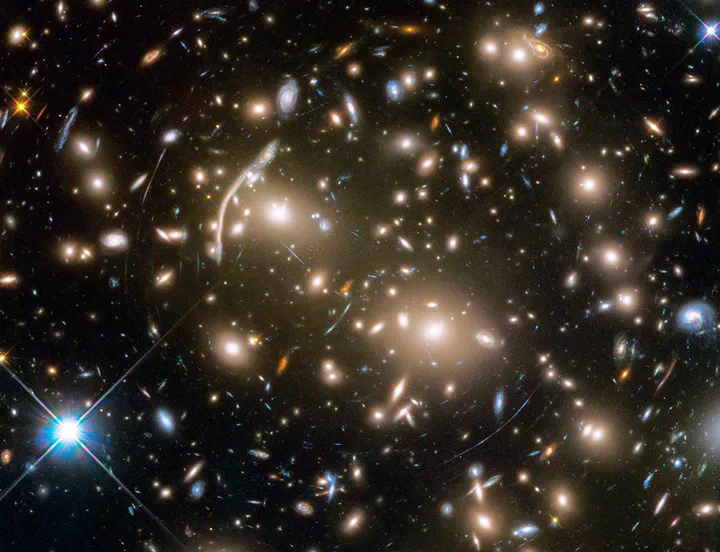A novel Inversion Algorithm for Weak Lensing using Quasi-Conformal Geometry

Abstract
One of the challenges in weak gravitational lensing by galaxies and clusters is to infer the projected mass density distribution from gravitational lensing measurements, which is known as inversion problem. We introduce a novel theoretical approach to solve the inversion problem. The cornerstone of the proposed method lies in a complex formalism that describes the lens mapping as quasi-conformal mapping with the Beltrami coefficient given by the negative of the reduced shear, which is, in principle, observable from the image ellipticities. We propose an algorithm called QCLens that is based on this complex formalism. QCLens computes the underlying quasi-conformal mapping with a finite element approach by reducing the problem to two elliptic partial differential equations solely depending on the reduced shear field. Experimental results for both the Schwarzschild and singular isothermal lens demonstrate the agreement of our proposed method with the analytically computable solutions.
Type
This work was driven by a research project on weak gravitational lensing and later became my bachelor thesis in physics at Heidelberg University under the supervision of Prof. Björn Malte Schäfer.